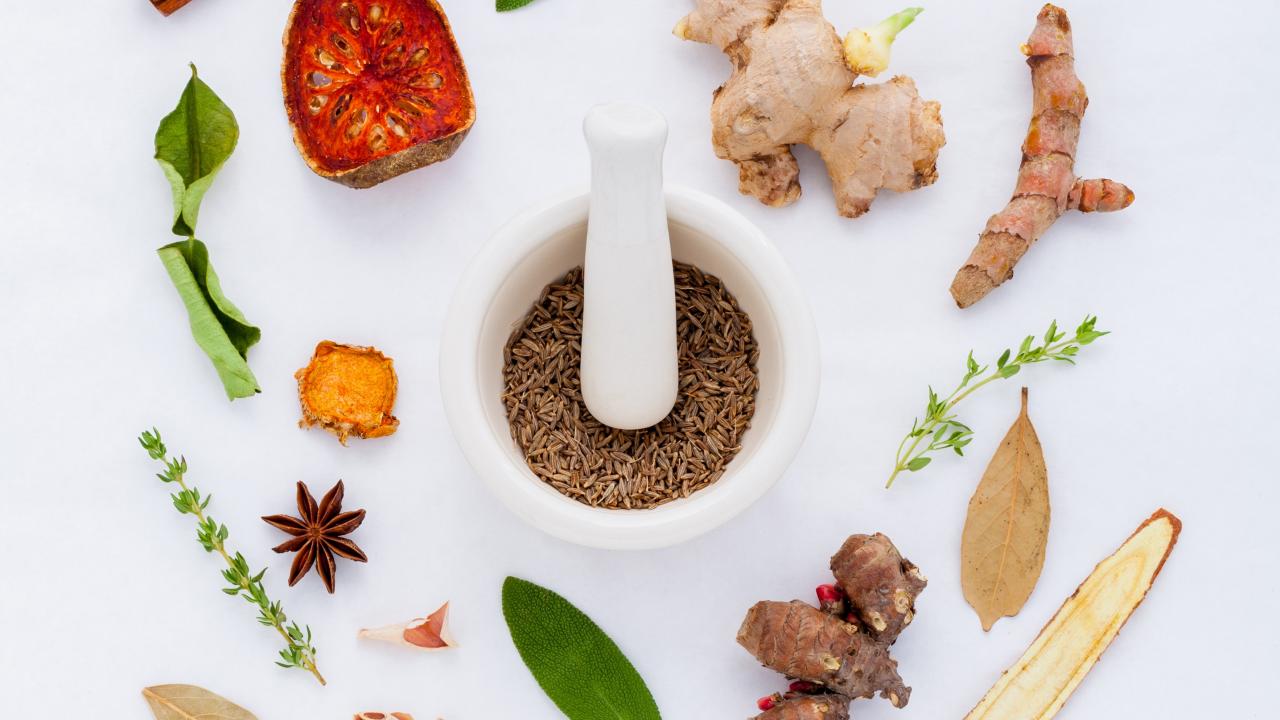
Say Na to Sodium and K to Potassium!
A high-salt diet can raise blood pressure levels, putting individuals over 50 years old, those who have diabetes, and those with slightly elevated blood pressure at risk for developing hypertension, which can further contribute to developing heart disease. Did you know that potassium may help lower your blood pressure, leading to improved heart health? Foods rich in potassium include potatoes, tomatoes, avocados, lentils, and yogurt. For a more comprehensive list of foods high in potassium check out the Dietary Guidelines for Americans!
Making small changes to your food preparations with salt alternatives can help to reduce sodium intake in everyday meals, which can further lead to increased heart health! Decrease the amount of salt added to your favorite meals by seasoning your food with different spices and herbs:
- Basil is a sweet, peppery herb that works great when included with roasts, fish dishes, and soups or as a sauce and pesto on top of salads and whole grain pastas!
- Chili and Cayenne provide a hot, spicy flavor to your Cajun, Spanish, Mexican, Szechuan, Thai and Indian recipes. For a creative approach, try adding a pinch of chili and cayenne with a little mustard to spice up a low-fat cheese sauce!
- Cumin adds an earthy, smoky flavor suitable for almost any dish, especially those that include meats, beans, and rice! Combine cumin with oregano and chili for a Mexican twist, or with cardamom, coriander and turmeric for a taste of India.
Other ways to help lower the sodium intake in your daily snacks and meals include:
- Choosing home cooked meals and snacks instead of eating out when possible: Help further control the amount of salt added to each dish by making it yourself!
- Reading the Nutrition Fact labels to compare food choices: Nutrition Fact labels are generally found on the backside of food packages. The daily value for Americans for sodium is less than 2300 milligrams of sodium per day.
Find more salt alternatives and tips at the British Heart Foundation website!
